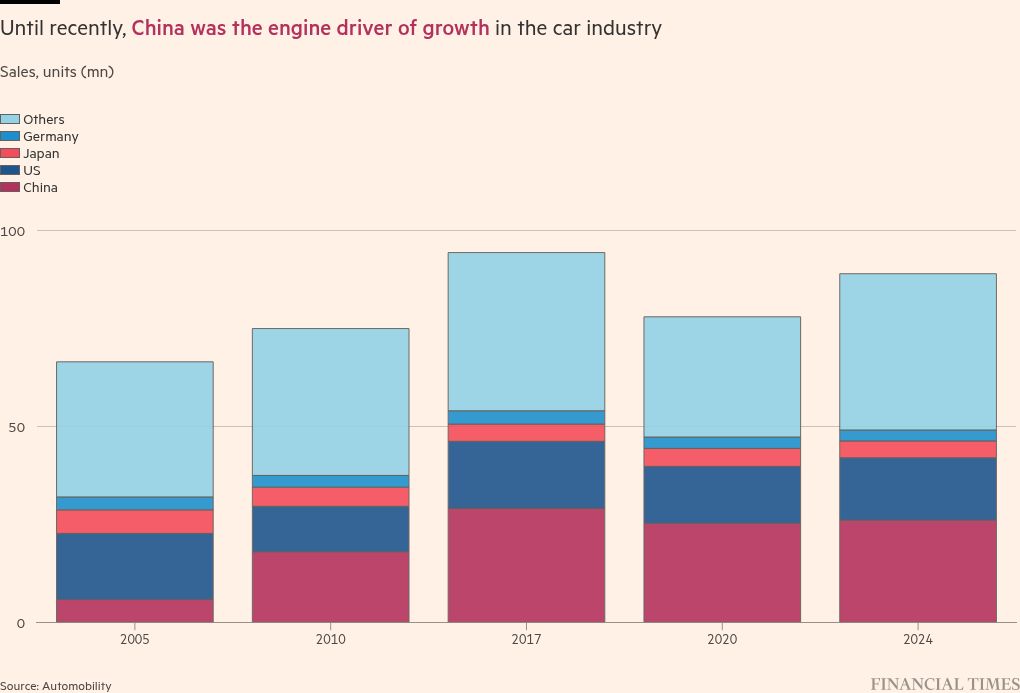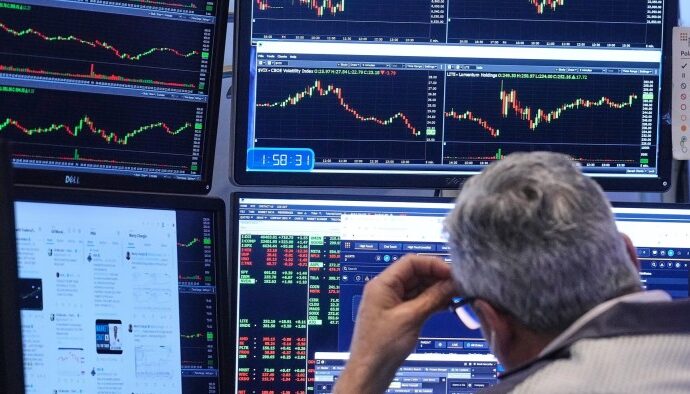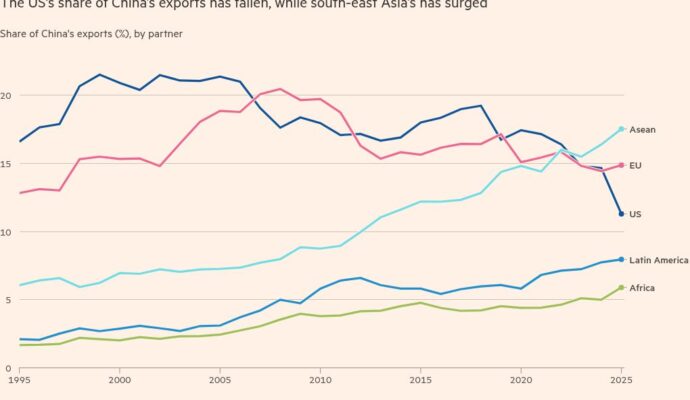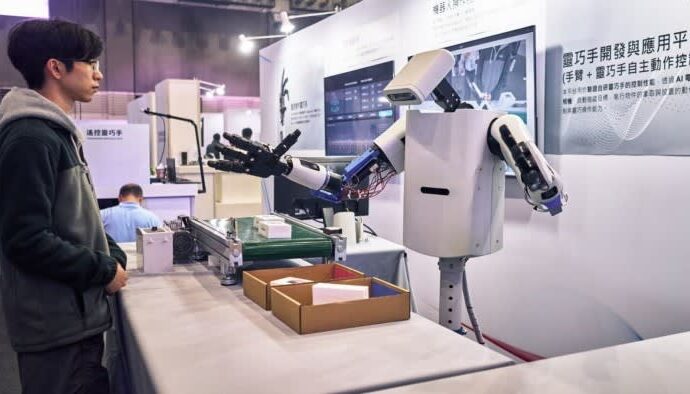This article is an on-site version of our FirstFT newsletter. Subscribers can sign up to our Asia, Europe/Africa or Americas edition to get the newsletter delivered every weekday morning. Explore all of our newsletters here
Good morning and welcome back to FirstFT Asia. In today’s newsletter:
We start in Mumbai, where Prime Minister Narendra Modi yesterday inaugurated a new airport developed by Gautam Adani on the fringes of the city, in the latest sign of the Indian tycoon’s domestic rehabilitation after fraud allegations.
What to know: The airport — shaped like a lotus, India’s national flower and the emblem of Modi’s Bharatiya Janata party — cost more than $2bn to build and is 74 per cent owned by the Adani Group. The project was first envisioned in 1997 and is expected to grow into a four-terminal hub. It is due to begin commercial operations in December. Speaking at the official opening of the airport, Modi said the project was an example of “Viksit Bharat [developed India]”, referring to India’s aspiration to attain developed-nation status by 2047.
Adani’s rehabilitation: The inauguration comes weeks after India’s markets regulator cleared the Adani Group of a number of fraud allegations stemming from a 2023 report published by the now-defunct short seller Hindenburg Research. The report became a focal point of attack by India’s opposition parties, which criticised Modi over his long relationship with the infrastructure magnate.
The Indian prime minister was seen to have briefly distanced himself from India’s second-wealthiest man but has since last year attended investment summits at the same time as Adani and inaugurated one of his new ports. Here’s more on the Indian tycoon’s new airport.
India’s digital ID: Sir Keir Starmer has hailed India’s national digital identification programme as a “massive success” as the British prime minister said his scheme could lead to the public using IDs to access a range of services.
More India: Indian electric scooter makers are preparing for millions of bike owners replacing petrol-powered rides with battery models, riding them through rutted roads and making sure they can survive India’s harsh conditions.
Here’s what else we’re keeping tabs on today:
China-North Korea relations: Chinese premier Li Qiang visits North Korea to participate in the 80th anniversary celebrations of its ruling party.
India-UK ties: Modi is due to address a three-day fintech summit in Mumbai — expected to draw more than 100,000 people — with British counterpart Keir Starmer.
Monetary policy: The Philippine central bank announces its rate decision.
Japanese companies: 7 Eleven owner Seven & i Holdings and Uniqlo parent Fast Retailing report results.
Five more top stories
1. Some of the Federal Reserve’s top officials would have preferred to keep borrowing costs on hold last month, highlighting concerns among policymakers that elevated inflation still poses a threat to the US economy. Here’s more from the minutes of the September meeting, when the Fed cut borrowing costs for the first time this year.
More US news: James Comey has pleaded not guilty to charges of lying to and obstructing Congress, in the first court appearance by the former FBI director who oversaw a probe into alleged links between Donald Trump and Russia.
Trump’s Gaza plan: The US president has said he could travel to the Middle East as early as this weekend as negotiators draw “very close” to finalising his peace deal.
2. International investors are returning to China’s start-up scene, with small venture capital fundraisings marking the first signs of a thaw for a sector hit by geopolitical tensions and a tech crackdown. The country’s top VC funds were close to raising as much as $1.1bn in total dollar-denominated funds this year, according to people familiar with the fundraising efforts.
3. Vietnam has been upgraded to emerging market status by an index provider for the first time, in a move that could bring in billions of dollars of investment into the country’s equity markets. FTSE Russell’s upgrade of Vietnam from “frontier market” status comes at a crucial time for the country, which has become a pivotal link in the global supply chain as manufacturing moves away from China.
4. Jefferies has said that one of its credit funds has about $715mn of exposure linked to First Brands Group, making it one of the largest-known creditors to the bankrupt auto parts company. The US investment bank is under intense scrutiny for its long-standing relationship with the Ohio-based group.
5. The British government’s refusal to testify that China is a national security threat in a major espionage trial has signalled to Beijing that “the UK can be bullied”, according to a former senior diplomat who was due to be a prosecution witness in the now-collapsed case. Read the full story.
News in-depth
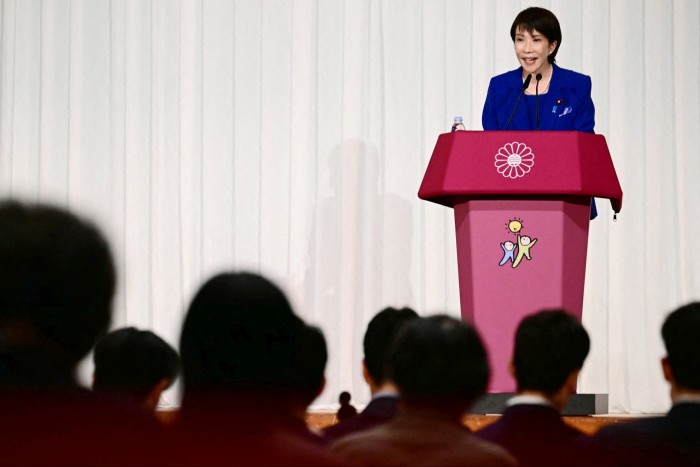
Sanae Takaichi’s election as leader of Japan’s ruling Liberal Democratic party was seen as historic in a country where women remain under-represented in business and politics. But Takaichi’s rise is complicated — and some are sceptical that the hardline conservative’s victory is a signal that either the LDP or Japan had shifted to a more progressive stance. “It is a symbolic moment for Japan, but it is still the politics of illusion,” said Mieko Nakabayashi, a political scientist at Waseda University.
We’re also reading . . .
Prabowo’s spending plans: Indonesia is increasingly turning to rarely used cash buffers — normally used to combat fiscal shocks — to fund President Prabowo Subianto’s economic plans.
Market melt-up: Increasingly the mood among investors is that if you can’t beat ’em, join ’em, with even the most cautious hopping along for the ride, writes Katie Martin.
‘I deserve it’: Trump has loomed large over this year’s Nobel Peace Prize, waging a brazen and unrelenting campaign for the prestigious honour.
Chart of the day
Despite investing billions of dollars into electric vehicles, a large swath of the legacy car industry is quickly — and happily — adapting to a new reality of longer life for the traditional internal combustion engine. But analysts warn that the pivot comes with big risks given China’s rapid ascent in EVs.
Take a break from the news . . .
The first rule of being an It Girl is that someone else has to call you that. But it’s hard to know exactly what an It Girl is, writes Marisa Meltzer, who has spent two years researching the subject for an upcoming book. She starts with the original It Girl: Jane Birkin.

